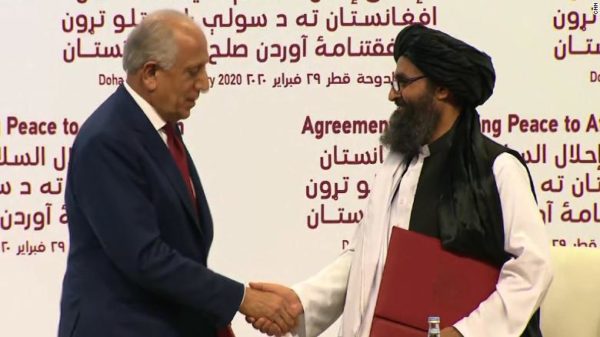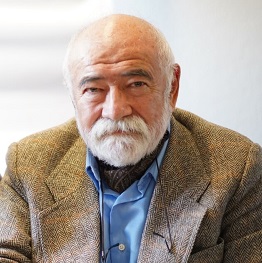The US deal with the Taliban has had several dimensions but one dimension that is overlooked is the ethnic or tribal one. All sides involved in promoting the deal, have had an element of the ethnic contribution that facilitated or coalesced into a deal or in effect triumph of the Taliban and Pakistan. Firstly Pakistan, as the kingmaker and power broker to Afghanistan for at least the last three decades, played the ethnic card in brokering the deal. As the US negotiation with the Taliban proceeded, the Trump administration requested Pakistan’s help in brokering a deal by encouraging its proxies, the Taliban. Pakistan obliged and released a Taliban leader which gave Mr. Trump a fig leaf reason to leave Afghanistan. Pakistan’s move helped to strengthen the Pashtuns in Afghanistan and bring the Afghan government closer to Pakistan. Imran Khan, himself a Pashtun released Mulla Abdul Ghani Baradar at the request of US envoy Zalmay Khalilzad also a Pashtun to join the rest of his cohorts in Qatar. Imran Khan could very well refuse to accept the US representative’s request but he did not. With this gesture, he gained some leverage with the Trump white house that in its dire need of a solution to the Afghan quagmire needed the key figure that would come to deal with the US. Mr. Khan also respected the Pashtun code of solidarity and by doing so raised a notch the possibility of Taliban ascendance to power in Afghanistan and thus strengthening Pakistan’s grip on its neighbor.
Later, in another unrelated event but still bound to Pashtun solidarity and a gesture to his fellow Pashtun in power, Mr. Khan let a delegation of Pashtuns visit Afghanistan to join the inauguration of Ashraf Ghani Ahmadzai. Ashraf Ghani, since becoming the president of Afghanistan in a fraudulent election in 2014 and again in 2019, has had three meetings with the prominent Pashtun leaders of Pakistan. In this regard, he is the first Afghan leader to meet with those leaders on more than one occasion. This time, however, he also met with the leaders of the newly formed Pashtun Tahaffoz Movement that is in opposition to the government in Pakistan. So much was Imran Khan’s support of Ashraf Ghani Ahmadzai, that he let the opponents of his government go on a political trip to Kabul. Ashraf Ghani Ahmadzai made the most of the opportunity available to him. Not coincidentally, Khalilzad was also present in the inauguration. The whole ethnic show was there for all to see except the US administration that has been played at the hands of a shrewd Pashtun from Washington.
Whatever the reasons behind the current US-Taliban deal, it once again strengthens the Pashtun grip on power in Afghanistan. Since the formation of Afghanistan as a country, it has been ruled by the Pashtuns except for two brief hiatuses in modern history. In 1929, to overthrow the reformist government of King Amanullah, an illiterate Tajik bandit leader was helped to grab the power for nine months until a pro-British strongman was brought to lead Afghanistan as the new king. In 1992 a Mujahedin government was formed in Kabul with the help of Pakistan only to be overthrown by a ragtag band of religious zealots, the Taliban, who ruled the country until it collapsed under the weight of the US military might in 2001.
The country has remained one of the most backward and undeveloped in the region because first, it was mismanaged by the ruling circles and second because it was backed by foreign powers in favor of one ethnic group. While constituting the majority of the people in the country, the non-Pashtuns were for the most part marginalized by the ruling tribal elites.
The key player in bringing the Taliban to the negotiation table as a partner in peace with the US is Khalilzad. He is a former US official and is part of the neo-conservative group in the US who endeared himself to Trump during the campaign for the presidency. He was also close to the Bush administration and was instrumental in the Bonn conference that brought about the new system of powerful central government with the president as its head. The opposition lead by the Northern Alliance was in favor of a decentralized parliamentary system where the president would not have the ultimate say. Khalilzad was also instrumental in supporting Hamid Karzai instead of Sattar Seerat who was favored by the ex-King Zaher and the other parties at the conference.
Khalilzad’s association with the Taliban goes much beyond the current job as the US special envoy for Afghanistan. In 1996, the Taliban took control of much of Afghanistan with heavy support from Pakistan. This created new opportunities for Pakistan to enter the Central Asian markets. In fact it was with the convoy of trucks from Pakistan that the first group of Taliban entered Afghanistan both to safeguard the convoy as well as occupy key positions in Afghanistan’s southwest volatile region. Among the opportunities was a possible gas-pipeline that was to be built by an American oil company called Unocal. Khalilzad was a consultant for Unocal. He saw the opportunity and advised now-defunct Unocal in favor of a deal for a pipeline that was to run through Afghanistan to Pakistan. He also tried to lobby for the Taliban in Washington and in 1996 wrote a favorable op-ed in the Washington Post describing the Taliban as a group that the US can work with and trust: The “Taliban does not practice the anti-U.S. style of fundamentalism practiced by Iran — it is closer to the Saudi model. The group upholds a mix of traditional Pashtun values and an orthodox interpretation of Islam.” (1)
Unocal brought senior Taliban leaders to the US State of Texas for further negotiations in 1997 and it was here that Khalilzad met with them and established a cozy relationship. But then as now, the Taliban had a cozier relationship with Al Qaeda whose leader had moved from Sudan to Afghanistan and in 1998, planned and carried out attacks on the US embassies in Africa. The Unocal deal fell through and Khalilzad went out of the picture at least for a while. When the Taliban were toppled by the US bombings from the air and the Northern Alliance push from the ground, Khalilzad again entered the scene as the special envoy to Afghanistan, acting more like a viceroy than an ambassador. He was involved in every nitty-gritty of the process of emergency and constitutional or the first and second Grand Assemblies, respectively. Known as the Loya Jirga these were the gatherings that were convened to map the future of the country. Here, he was more forceful in arm twisting and pushing people around with the US power behind him. Like general MacArthur in post-war Japan, he was pushing for what he thought was the right path to post-war Afghanistan rather than what the people wanted. A lot of what Afghanistan is going through is the result of the ill-conceived arrangements that Khalilzad proposed for Afghanistan. The thinking in Afghanistan is Khalilzad insisted on a strong central government to give his fellow kinsmen the monopoly of power.
The country is tired of one ethnic group ruling and deciding the fate of the majority of the people. During the previous Afghan administration, John Kerry perceived the problem of governing Afghanistan and he proposed a semi-decentralized system bringing the representative of the non-Pashtuns in the de facto dual system of a president and prime minister, not exactly in that name.
In the aftermath of the recent elections, Khalilzad supported the Ghani’s administration who against all odds claims to be the legitimately elected president. He also dealt a major blow to the prestige and future security of the US by agreeing to give in to the Taliban demands of withdrawing US forces from Afghanistan. Worse yet, he agreed to release 5,000 prisoners some of them hardcore criminals who have killed not only enemy soldiers but civilians as well. The agreement is tantamount to surrender or capitulation.
On prisoners release, “In Washington, lawmakers questioned whether they were misled by Secretary of State Mike Pompeo last month when they said he assured them that prisoner releases would not be part of the American deal with the Taliban.”
“He was categorical that prisoner releases weren’t part of the agreement,” said Representative Tom Malinowski, Democrat of New Jersey and a former assistant secretary of state during the Obama administration. A spokeswoman for Senator Sheldon Whitehouse, Democrat of Rhode Island, said he attended the same briefing with Mr. Pompeo at the Munich Security Conference, and he confirmed Mr. Malinowski’s account. Mr. Malinowski questioned why the deadline for as many as 5,000 Taliban prisoners was included in the agreement “if they didn’t intend some significant number to actually be released,” he said on Sunday. “The Taliban certainly expect this to happen — this has been their longstanding demand.” (2)
In the US the agreement is hailed as an achievement in the long-running US war in Afghanistan. In reality, what Khalilzad got in return for his efforts in helping his fellow kinsmen is an empty promise from the Taliban that they will not let Afghanistan be used against the US. It is a well-known fact that some of the world’s worst terrorist groups are now operating in Afghanistan like Al Qaeda, ISIS, Islamic Movement of Uzbekistan to name a few. Taliban have no control over these people nor do they have the will or power to act independently. As Michael Rubin writes: “… The Taliban would not exist without Pakistani support. While Khalilzad and diplomats shroud negotiations in the idea of bringing peace between Afghan factions, the Taliban negotiators were based in Qatar and answered to leadership in Quetta which in turn took direction from Pakistan’s Inter-Services Intelligence in Islamabad.” (3) Pakistan’s role in directing the Taliban is an elephant in the room that no one talks about.
For the people of Afghanistan who have suffered for almost forty years, a sad chapter is opening with the country being ruled once again by a fundamentalist religious group made up of mostly one ethnic group that neither has the majority nor the fairness or compassion for others whom at times they despise, nor do they have the will to develop the country. Given the history of the region, another civil war is looming large in the horizon. What constitutes peace for America is no peace for Afghans.

